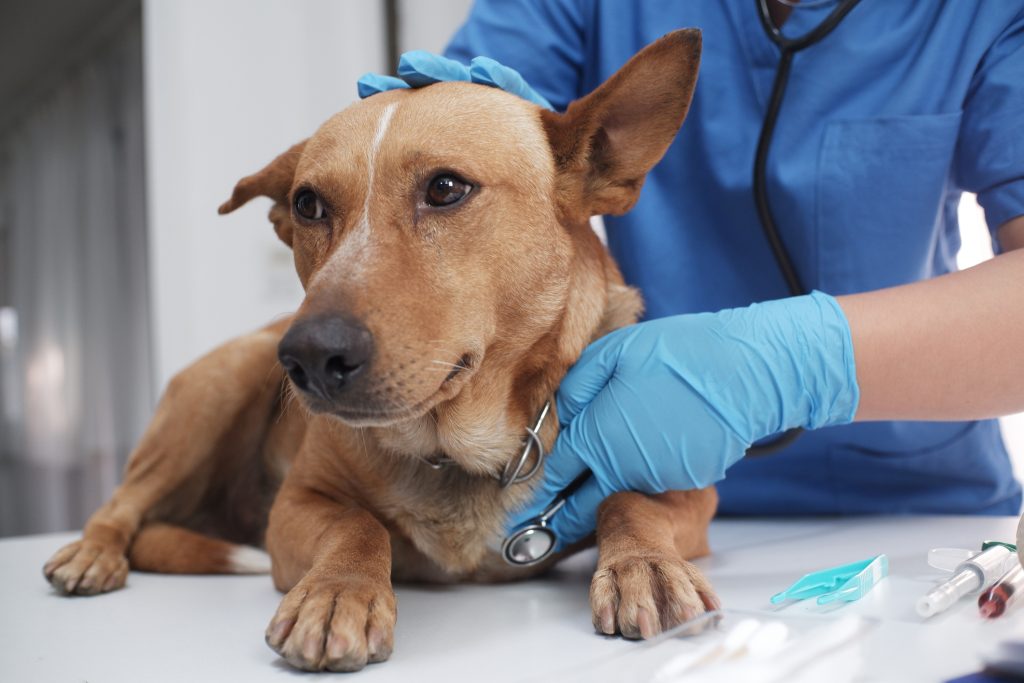Innovative cancer research at the University of Missouri College of Veterinary Medicine offers a glimmer of hope for both canine and human patients battling lymphoma. This pioneering study, funded by the National Cancer Institute, focuses on a novel approach utilizing chimeric antigen receptor (CAR) T-cell therapy, a cutting-edge immunotherapy that engineers a patient’s own immune cells to target and destroy cancer cells. The research team, led by Professor Jeffrey Bryan, has achieved encouraging preliminary results in two canine patients with advanced lymphoma, showcasing the potential of this therapy to revolutionize cancer treatment.
The essence of CAR T-cell therapy lies in its ability to reprogram T cells, a crucial component of the immune system, into highly effective cancer-fighting agents. This genetic modification equips the T cells with specialized receptors, effectively transforming them into “professional killers” programmed to recognize and eliminate cancer cells with remarkable precision. In this particular study, the CAR T cells are administered directly into the patient’s lymph nodes, the primary site of lymphoma development. The direct injection strategy aims to maximize the therapeutic impact at the core of the disease.
The initial trials involving two dogs with widespread lymphoma demonstrated the rapid and potent action of CAR T-cell therapy. Within a mere week and a half, the treatment dramatically reduced the presence of measurable cancer cells, bringing the dogs into a state of near complete remission. While both dogs experienced a recurrence of the cancer months later, the initial success underscores the potential of this therapy, particularly its ability to induce swift responses even in advanced stages of the disease. The researchers were particularly impressed by the consistency of these rapid responses in both canine patients.
A unique aspect of this research involves the integration of positron emission tomography (PET) scanning, a sophisticated live imaging technique, to monitor the movement and activity of the CAR T cells within the body. By conducting PET scans on days one, three, and seven following the treatment, the team gained valuable insights into the distribution and behavior of the engineered cells. This real-time tracking provides crucial information about the therapy’s mechanism of action and can help optimize treatment strategies for improved efficacy.
One of the canine participants, a border collie named Sadie, experienced a significant reduction in lymphatic swelling following the CAR T-cell therapy. According to Sadie’s owner, she exhibited remarkable improvement each day, nearing a full recovery. While Sadie continues to receive conventional cancer treatments, her positive response to the experimental therapy highlights the potential for CAR T cells to improve quality of life, even in cases of advanced disease. The owner expressed deep gratitude for the compassionate care and transparent communication provided by the veterinary team at the University of Missouri.
Building upon the promising initial results, the research team is actively seeking a third canine candidate to further evaluate the safety and efficacy of CAR T-cell therapy. The long-term goal is to translate these findings to human patients, paving the way for innovative cancer treatments that could benefit both species. A collaboration with the Mayo Clinic aims to bridge the gap between veterinary and human medicine, accelerating the development of CAR T-cell therapies for human lymphoma patients.
The ongoing research will continue to explore the intricacies of CAR T-cell behavior within the body, including their distribution patterns, expansion dynamics, and interactions with cancer cells. The insights gained from PET imaging will be instrumental in refining treatment protocols and maximizing the effectiveness of this promising therapy. Professor Bryan remains optimistic that this innovative approach will ultimately “benefit both sides of the leash,” offering new hope for both canine and human companions in the fight against lymphoma. The potential to translate these findings into human clinical trials represents a significant step forward in the pursuit of more effective and personalized cancer therapies.
The research signifies a remarkable convergence of veterinary and human medicine, with discoveries in one field informing and accelerating progress in the other. The unique physiological similarities between dogs and humans, particularly in the context of certain cancers, make canine studies invaluable for understanding disease progression and evaluating novel therapies. The collaborative efforts between the University of Missouri and the Mayo Clinic exemplify the potential of cross-disciplinary research to advance medical knowledge and improve patient outcomes for both species.
The success of the initial canine trials provides a strong foundation for further investigation and optimization of CAR T-cell therapy. While the recurrence of cancer in the two canine patients highlights the need for continued research and refinement, the rapid initial response and the insights gained from PET imaging offer valuable clues for improving the long-term efficacy of the treatment. The researchers are exploring strategies to enhance the persistence and potency of CAR T cells, with the aim of achieving durable remissions and ultimately curing lymphoma.
The development of CAR T-cell therapy represents a paradigm shift in cancer treatment, moving away from traditional chemotherapy and radiation towards more targeted and personalized approaches. By harnessing the power of the patient’s own immune system, CAR T-cell therapy offers the potential to selectively eliminate cancer cells while minimizing damage to healthy tissues. This precision medicine approach holds immense promise for improving patient outcomes and reducing the debilitating side effects often associated with conventional cancer treatments.
The research at the University of Missouri represents a crucial step in the ongoing evolution of CAR T-cell therapy, demonstrating its potential in a pre-clinical setting and paving the way for future clinical trials in human patients. The collaborative nature of this research, involving veterinary oncologists, immunologists, and imaging specialists, underscores the importance of interdisciplinary collaboration in driving scientific discovery and translating research findings into tangible clinical benefits. The ultimate goal is to develop a safe, effective, and accessible CAR T-cell therapy that can offer hope and extended life to both human and animal companions facing the formidable challenge of lymphoma.










